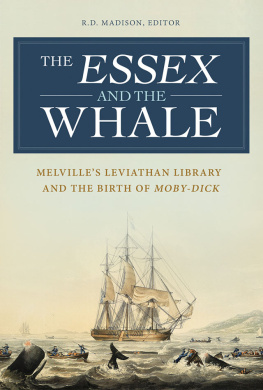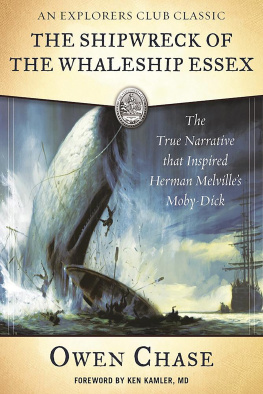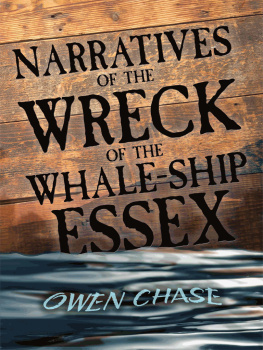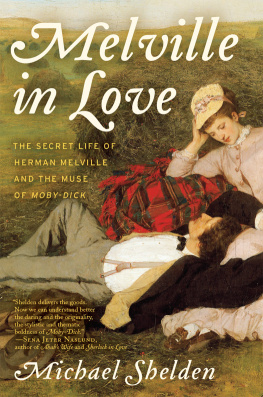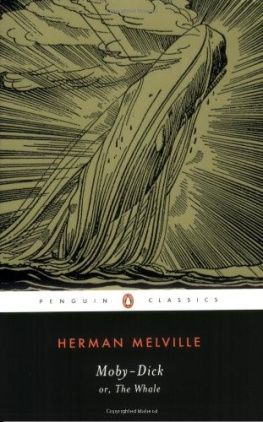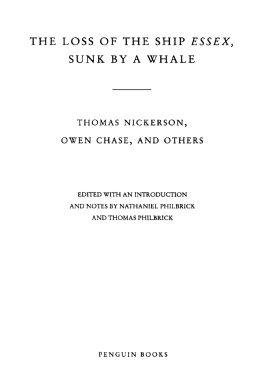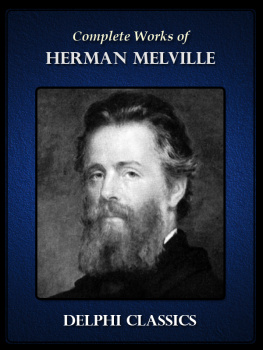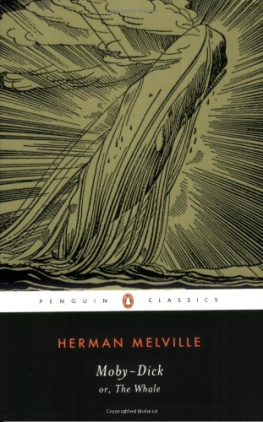THE ESSEX AND THE WHALE
THE ESSEX AND THE WHALE
MELVILLE'S LEVIATHAN LIBRARY AND THE BIRTH OF MOBY-DICK
R. D. MADISON, EDITOR
Copyright 2016 by R. D. Madison
All rights reserved. No part of this publication may be reproduced, stored in a retrieval system, or transmitted, in any form or by any means, electronic, mechanical, photocopying, recording, or otherwise, except for the inclusion of brief quotations in a review, without prior permission in writing from the publisher.
Library of Congress Cataloging-in-Publication Data
Names: Madison, R. D., editor.
Title: The Essex and the whale: Melvilles Leviathan library and the birth of Moby-Dick / R. D. Madison, editor [and introduction].
Description: Santa Barbara, California: ABC-CLIO, LLC, 2016. | Consists of excerpts from books read by Melville on whaling and whales with an introduction on his use of these sources to write Moby Dick. | Includes bibliographical references and index.
Identifiers: LCCN 2015046993 | ISBN 9781440850073 (hardback: alk. paper) | ISBN 9781440850080 (ebook)
Subjects: LCSH: Melville, Herman, 18191891. Moby DickSources. | WhalingLiterary collections. | Melville, Herman, 18191891 KnowledgeWhaling. | Melville, Herman, 18191891Books and reading. | Novelists, American19th centuryBiography. | Whalers (Persons)United StatesBiography. | WhalingSouth Pacific OceanHistory19th century.
Classification: LCC PS2384.M62 E87 2016 | DDC 813/.3dc23
LC record available at http://lccn.loc.gov/2015046993
ISBN: 978-1-4408-5007-3
EISBN: 978-1-4408-5008-0
20 19 18 17 16 1 2 3 4 5
This book is also available on the World Wide Web as an eBook.
Visit www.abc-clio.com for details.
Praeger
An Imprint of ABC-CLIO, LLC
ABC-CLIO, LLC
130 Cremona Drive, P.O. Box 1911
Santa Barbara, California 93116-1911
This book is printed on acid-free paper 
Manufactured in the United States of America
But it is a mild, mild wind, and mild looking sky.
Contents
Many people have contributed personally and directly to making this book possible.
Among those qui ante nos fuerunt, I give thanks: To Charles Wood, for introducing me to Murphys Oceanic Birds of South America. To Harrison Hayford, for teaching me about book collecting and other things. To Howard Vincent, for pacing Hayfords backyard quoting The Symphony. To Merton M. Sealts Jr. for establishing the system of keeping track of books physically associated with Melville. To John Seelye, for championing facsimile texts and material culture. To Wilson Heflin, for two copies of Maurys Whale Chart . To Don Yannella, for his voice and lunch in Annapolis. To Jonathan Wordsworth, for trusting me to row with him.
Among the living: To the Interlibrary Loan staff at the University of Arkansas, Fayetteville, for obtaining the right documents time after time. To Dean S. Nordquist, for introducing me to Nasrudin and Biblical scholarship. To Stuart M. Frank, for hiring me to sing chanteys at Mystic Seaport Museum. To Mary K. Bercaw Edwards, for systematizing the study of Melvilles sources. To Ginger Vaughan, for describing Stauntons Blackfriars Theatre one day in the Folger Library reading room. To Steven Olsen-Smith, for taking over Sealtss work and creating the magnificent Melvilles Marginalia Online. To Hershel Parker and Tom Tanselle, for making fast to the final Northwestern-Newberry volume. To Bob Sandberg, for transcribing Melvilles miscellaneous poems according to Toms matrixand thus freeing me from that task. To Michael Millman, for being my editor and friend.
And to Karen Lentz Madison, for she is of the tribe of Tiger, for the Cherub Cat is a term of the Angel Tiger.
Gramercy. Vivant!
Introduction:
Swimming Through Libraries
When he finished his manuscript of Moby-Dick or the Whale in the autumn of 1851, Herman Melville (18191891) may well have known more about whaling than any other person alive. I have swam through libraries, Melville famously wrote in Chapter 32: Cetology. In fact, Melville had been interested in whaling books nearly as long as he had been a whaler. He had first gone to sea as a merchant sailor in 1839, as his older brother struggled to keep the family solvent (their father had died in 1832). After a single voyage to Liverpool and back, Melville taught school briefly in New York and traveled to Illinois in search of employment: both endeavors were unsuccessful. Late in the year 1840, he made his way to New Bedford, the center of the American whaling industry. He sailed from Fairhaven, Massachusetts, in the brand-new whale-ship Acushnet on the third of January 1841 but jumped ship at the Marquesas Islands a year and a half later. He next signed on to the Australian whaler Lucy Ann , of Sydney, but was put ashore at Tahiti as a mutineer. After the Lucy Ann sailed without him, he signed on the whaler Charles and Henry of Nantucket for the passage to Hawaii, where the vessel arrived in May 1843. Three months later, he joined the Frigate United States homeward bound and arrived at Boston on October 3, 1844.
Somewhere in the South Pacific, Melville was handed a copy of Owen Chases Narrative of the Most Extraordinary and Distressing Shipwreck of the Whale-Ship Essex of Nantucket. Somewhat bulkier than a pamphlet, Chases book was not exactly the kind of thing that would draw one to sea. By the time he encountered Chases book, Melville, who had lived through the stormy North Atlantic run between New York and Liverpool, had also experienced a Cape Horn passage and the remote and otherworldly Galapagos Islands. As a foremast hand, Melville would have heard the water rushing past a few inches from his head every time he turned in; he would have experienced broken spars and blown-out sails, being sent aloft himself to make the tatters fast. He may already have experienced a shattered whale-boat or lingering disease. The whale fisheryor any place at sea, for that matterwas not a particularly safe place to pursue ones profession. But Melville experienced nothing like what happened to the crew of the Essex. Chases book, in brief, told a tale that begins in the remotest part of the Pacific Ocean with the sinking of the Essex by a whale and ends with a gruesome description of survival cannibalism after thousands of miles of open-boat sailing.
In 1819, the whale-ship Essex , Captain George Pollard (17911870), left Nantucket, the famous whaling island off the coast of Cape Cod in Massachusetts. The Essex was bound on a whaling voyage to the Pacific Ocean, which meant the vessel had to sail halfway round the world just to reach the whaling grounds. She carried the normal complement of whale-boats, 30-foot double-ended boats that could be rowed, paddled, or sailed. Each boat carried a crew of four oarsmen in addition to the officer who commanded the boat and a harpooner who was responsible for initially striking the whale and making the boat fast by means of a harpoon and about a quarter of a mile of line.
At about the longitude of San Diego but nearly on the equator, after the Essex had been 15 months at sea, the boats were lowered to pursue a pod or group of whales. The pursuers, however, became the pursued when a large sperm whalewith apparent deliberationrammed the Essex twice. Since the ship was made of wood and was carrying oil, it did not sink immediately, but quickly took on enough water to bring the upper deck to the waterline. Repair of the ship was hopeless, and after salvaging what they could from the ship, the crew was divided among the three seaworthy whale-boats. When the Essex began to break up from the motion of the water, the voyage of survival began.

